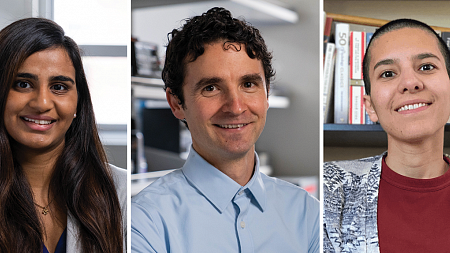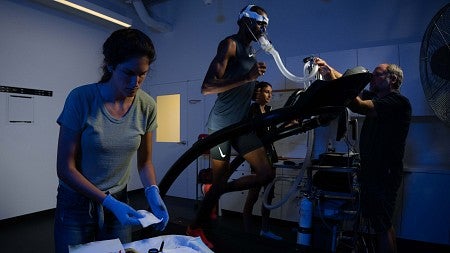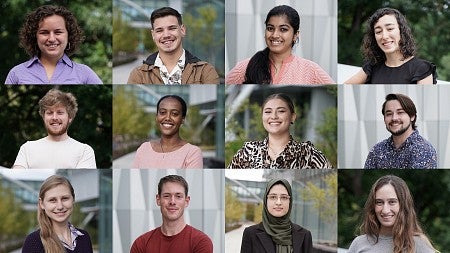Leader in computer-aided medical imaging joins Knight Campus faculty
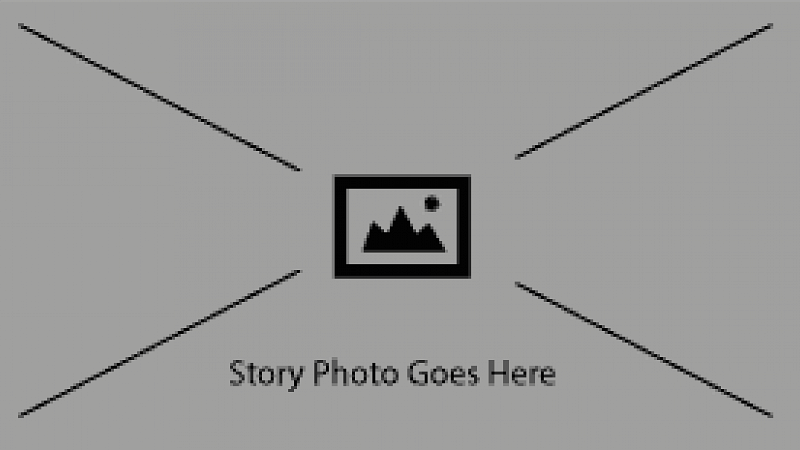
Courosh Mehanian brings expertise in machine learning and artificial intelligence and a passion for improving the lives of patients through better diagnoses.
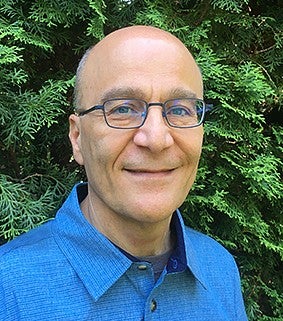
A biomedical machine learning scientist focused on developing medical imaging software to improve disease diagnosis has brought his expertise to the Phil and Penny Knight Campus for Accelerating Scientific Impact.
Courosh Mehanian recently joined the Knight Campus as a research associate professor. An expert in machine learning and computer vision, he has a background in physics and a love of learning about biology and medicine.
“My work is all about making people healthier and their lives better,” Mehanian said. “Whether you are blessed with good health or facing health challenges, medical imaging will be a part of your healthcare at some point. Knowing that your medical images are being analyzed by the latest AI models trained by world experts is reassuring.”
The Mehanian Lab develops machine learning algorithms to solve healthcare problems relating to the detection and diagnosis of disease or the prognosis of health risks. Work his lab has done on this front has included pneumonia and malaria, which account for an estimated 800,000 deaths annually and 400,000 annual deaths, respectively, predominantly among children in low and middle-income countries. When diagnosed effectively and rapidly through improved screening methods, these kinds of diseases can often be treated and bad outcomes averted.
Mehanian and his team are tackling the global disparity in the availability of medical imaging resources — whether due to limited expertise or equipment or a combination of factors. Healthcare providers in a number of settings — the battlefield or a low-income country or rural region — often face daunting challenges. In addition, healthcare systems are overburdened in many parts of the world and medical imaging experts are left to spend long hours poring through images looking for the proverbial “needle in the haystack,” which can result in errors, Mehanian says. Variability between different readers and even variation in outcomes by a single reader at different times, compound the problem, which is where artificial intelligence comes in.
“AI can help fill these gaps by analyzing images with models trained on data labeled by teams of domain experts, thus making reliable and consistent medical expertise available regardless of setting,” Mehanian said. “AI does not remove the human from the loop, but frees people to use their time for high-level cognitive tasks like medical judgment and patient care — tasks which are, for the moment, out of reach for AI.”
Mehanian’s research strives to equalize access to medical imaging expertise, regardless of whether the patient lives in a city in Austria, a farm in Mississippi or a village in Zimbabwe. In practice, his work is highly collaborative and often starts with members of his lab teaming up with medical professionals as they seek to identify how a medical imaging problem could benefit from AI-automated analysis. An under-appreciated reality is that accumulating sufficient data to carry out machine learning, creating definitions of disease states, annotating images, and other curation of the data — all these tasks may take months or even longer, Mehanian says. Machine learning model development is relatively quick by comparison. If all goes well, results are then tested, validated and readied for regulatory approval and commercialization.
“Dr. Mehanian’s impactful and wide-ranging research interests align perfectly with the mission of the Knight Campus,” said Robert Guldberg, vice president and Robert and Leona DeArmond Executive Director of the Knight Campus. “His work is particularly focused on applications of machine learning technology to biomedical image data and healthcare problems with a high potential for societal benefit.”
In his previous role at the helm of the machine learning group at the Bill Gates-owned Global Health Labs, Mehanian was focused on using biomedical technologies to solve global health challenges. Years before that, he earned a Ph.D. in physics from Cornell University, served as a research faculty member at Boston University developing biologically-inspired computer vision models and then developed computer vision algorithms for object recognition systems at the MIT Lincoln Laboratory. He went on to work in the private sector, tackling an array of different health- and manufacturing-related challenges through machine learning, deep learning and other computer-assisted methods.
At the Knight Campus, Mehanian will extend his research in medical AI applications by participating in the Wu Tsai Human Performance Alliance at Oregon — with a focus on how to prevent injury in athletes based on AI-modeling of historical data, and how injuries can be quickly and accurately diagnosed and triaged with AI-based interpretation of point-of-care ultrasound imaging. Other directions for exploration include improved ophthalmic patient care through machine learning prediction of retinal surgery outcomes, and AI-driven optimization of 3D printing of therapeutic biomaterials.
“For both the Knight Campus and my research, what’s most important is positive impact in the world,” Mehanian said. “The Knight Campus provides the intellectual stimulation associated with a university campus as well as the opportunity to help in educating the next generation of applied machine learning researchers, which represents another, equally important, path to achieve positive global impact.”

